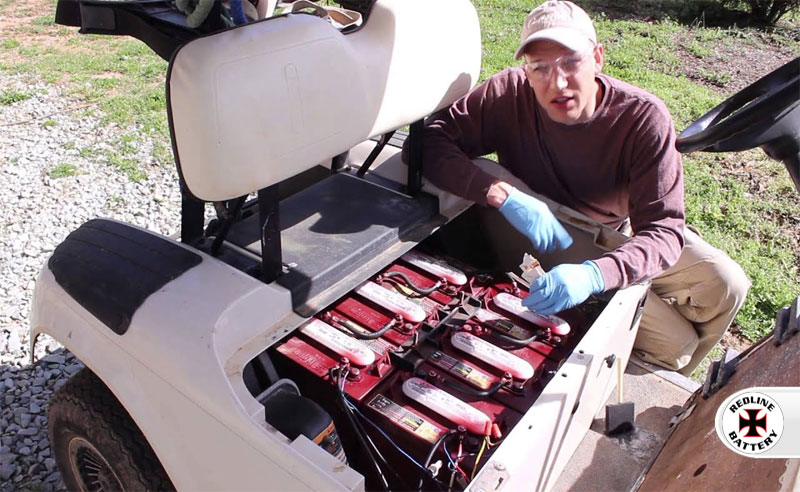
Overview:
Choosing the right cart batteries for your golf cart is an important decision that can greatly impact the performance and longevity of your cart. There are several factors to consider when making this decision, including the type of battery, capacity, voltage, and maintenance requirements.
Factors to Consider for Choosing the Right Cart Batteries for Your Golf Cart:
1. Battery Type:
There are generally two types of batteries for golf carts - lead-acid and lithium-ion. Lead-acid batteries are cheaper but require more maintenance, while lithium-ion batteries are more expensive but require less maintenance and have a longer lifespan.
2. Battery Voltage:
Golf carts typically operate on either a 36-volt or 48-volt system. Make sure to choose batteries compatible with your cart's voltage requirements.
3. Battery Capacity:
The capacity of a battery is measured in ampere-hours (Ah) and indicates how long the battery can provide a continuous current. Consider the average distance you want to travel on a single charge and choose a battery with sufficient capacity.
4. Brand Reputation:
Research and choose batteries from reputable brands known for their reliability and quality.
5. Cycle Life:
The cycle life refers to the number of charge-discharge cycles a battery can endure before its performance starts to deteriorate significantly. Look for batteries with a high cycle life for long-term durability.
6. Maintenance Requirements:
Lead-acid batteries require regular maintenance, including checking water levels, cleaning terminals, and equalizing charges. If you prefer low-maintenance options, consider lithium-ion batteries.
7. Weight:
Consider the weight of the batteries, as it can affect the overall weight and performance of the golf cart. Heavier batteries may reduce the cart's speed and range.
8. Charging Time:
Different batteries have varying charging times. If you need quick turnaround times, choose batteries that charge faster.
9. Charging System Compatibility:
Ensure that the batteries you choose are compatible with your golf cart's existing charging system. Some carts may require specific charging systems for certain battery types.
10. Price:
Compare prices of different battery brands and types, considering both upfront costs and long-term value. Remember that cheaper batteries may require more frequent replacement.
11. Warranty:
Check the warranty period and coverage offered by the battery manufacturer.
12. Environmental Impact:
Lithium-ion batteries are generally considered more environmentally friendly compared to lead-acid batteries. Consider the environmental impact and disposal options when making your choice.
13. Temperature Range:
Battery performance can be affected by extreme temperatures. If you frequently golf in very hot or cold climates, choose batteries that can withstand those conditions.
14. Reserve Capacity:
Reserve capacity refers to the number of minutes a battery can sustain a specific load before falling below a predetermined threshold voltage. Consider the reserve capacity to ensure your battery can handle your typical golfing activities without draining too quickly.
15. Technical Support:
Consider the availability and quality of technical support provided by the battery manufacturer. Having access to knowledgeable support can be beneficial if you encounter any issues or have questions about your batteries.
Conclusion:
Choosing the right cart batteries for your golf cart requires considering factors such as battery type, voltage, capacity, brand reputation, cycle life, maintenance requirements, weight, charging time, compatibility with the charging system, price, warranty, environmental impact, temperature range, reserve capacity, and technical support. By carefully evaluating these factors, you can find the batteries that best suit your needs and ensure optimal performance for your golf cart.
More News